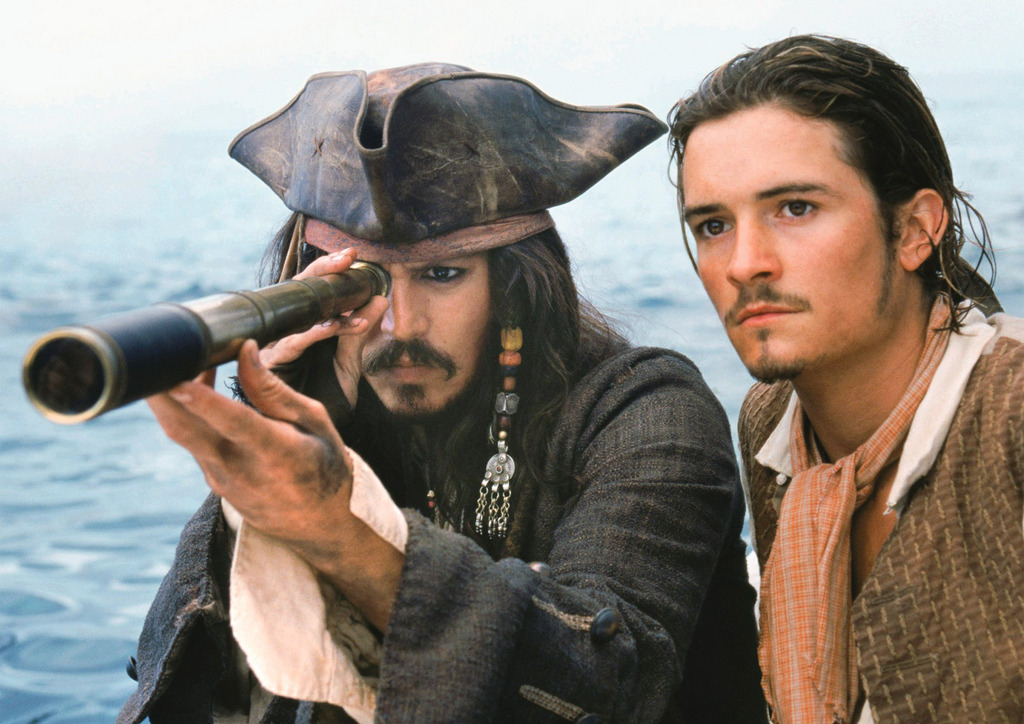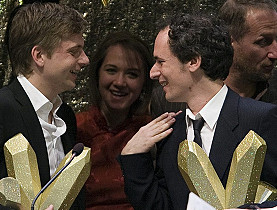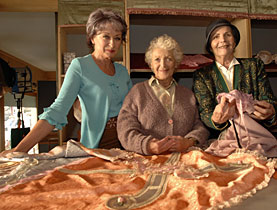Schiff ahoy! Why dubbed films are making waves

In 2007 Swiss cinemas for the first time sold more tickets for dubbed versions of foreign films than for subtitled versions.
In the old days only small rural cinemas had James Bond introducing himself in German, French or Italian. Now however dubbed films – primarily blockbusters – are gaining popularity in cities.
“I’m not surprised,” Max Dietiker, head of Universal Pictures Switzerland, told swissinfo.
“I’m slightly disappointed as it doesn’t reflect our own view of cinema – we would prefer to show a lot more original versions with subtitles – but unfortunately the market is against us. We show dubbed films where there is a demand for them.”
Dietiker, who shows both versions in cities whenever possible, puts the trend down to habit and “reading fatigue”.
“I think young people have got used to dubbing – they also watch films on television and DVD in German or French,” he said.
“Also we constantly hear that young people find reading subtitles to be an effort and that they go to the cinema to relax and be entertained!”
Philippe Täschler, head of Switzerland’s largest cinema chain Kitag, agrees that you can’t argue with market forces.
“You can’t make people watch what they don’t want to watch,” he said.
Dubbing is significantly cheaper for Swiss distributors as they can just use the dubbed copies of international films already floating around Germany, Austria and France. This costs SFr1,500-2000 ($1,380-1,840) per copy, depending on length and amount.
Adding French and German subtitles to a film specifically for the small Swiss market on the other hand – French and German films are generally not subtitled – will set Swiss distributors back SFr3,500-4,500 per copy.
“Subtitled films therefore need to have a longer run in cinemas to get back their money,” Max Dietiker, head of Universal Pictures Switzerland, told swissinfo.
Voice projection
The trend towards dubbing is particularly evident when it comes to youth-oriented blockbusters, according to ProCinema, the national film distribution association.
Pirates of the Caribbean, a swashbuckling romantic comedy starring Johnny Depp (pictured), is a good example. The first instalment came out in 2003 and was followed by two sequels in 2006 and 2007.
Thirty-seven per cent of Swiss cinemagoers chose to watch the first film in English. This dropped to 25 per cent for the second film and 20 per cent for the third.
“The more popcorn is eaten, the greater the demand for a dubbed version,” Dietiker said.
But it’s not only demand for dubbed films that is increasing – supply is also on the up. Original versions are still in the majority, but their dominance is being chipped away. Over the past five years their share of the market has dropped from 57 per cent to 53 per cent.
Dietiker denies that Switzerland’s unique linguistic set-up – there are four national languages – is a factor.
“It just means a lot more work!” he said. “In principle it’s neither an advantage nor a disadvantage – it’s simply a fact. The start dates usually differ in the various regions, so we rarely have nationwide releases.”
Lost in translation
Unlike neighbours in Germany, France and especially Italy, Swiss cinephiles have traditionally preferred subtitles to dubbing.
Dietiker explained that the dubbing wave in German-speaking Switzerland started in the northeast and spread west. In the French-speaking part of the country dubbing has been the norm in cinemas for years.
According to Anna Müller, 23, from Zurich it depended on the film. “I prefer to watch complicated films in German, otherwise I try to catch the original,” she told 20 Minutes. “Many jokes are lost when films are dubbed.”
But 22-year-old Severine Schmid from Basel said she preferred original versions. “It’s much more authentic when you hear the actors’ real voices. Plus I can learn English.”
“Cultural duty”
Some cinemas continue to buck the trend. Quinnie, a Bernese cinema chain which focuses on art house films, only shows dubbed films for early showings of children’s films.
Peter Sterk, a cinema owner in Aargau, only shows original versions in his ten halls, although he too makes an exception for children’s films.
He says that in a survey five years ago 90 per cent of his customers came out in favour of original versions. He adds that subtitles also appeal to the 500,000 Swiss who are hard of hearing.
“We shouldn’t forget that cinema is the seventh art [after visual arts, literature, music, theatre, painting and sculpture],” he said. “Therefore it is a cultural duty – for me and others – to show as many original versions as possible.”
A paragraph in this article has been removed on June 16, 2021. A person quoted wished not to be recognized in this context.
Most successful Swiss films in 2007 (provisional. Source: ProCinema):
Die Herbstzeitlosen (217,979 admissions)
Vitus (66,459)
Breakout (64,761)
Tell (55,285)
Bruno Manser – Laki Penan (29,449)
Most successful films overall in 2007:
Ratatouille (698,963 – still in cinemas)
Pirates of the Caribbean 3 (622,582)
Harry Potter: The Order of the Phoenix (524,976)
The Simpsons Movie (445,803)
Shrek the Third (435,071)

In compliance with the JTI standards
More: SWI swissinfo.ch certified by the Journalism Trust Initiative




You can find an overview of ongoing debates with our journalists here. Please join us!
If you want to start a conversation about a topic raised in this article or want to report factual errors, email us at english@swissinfo.ch.